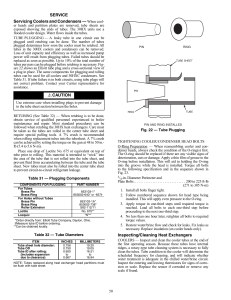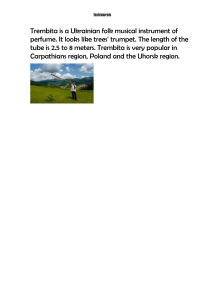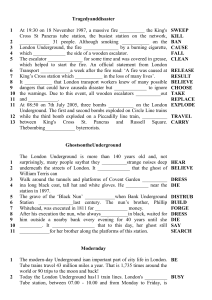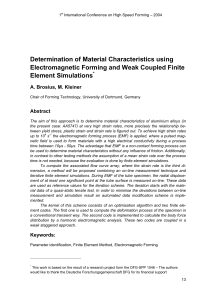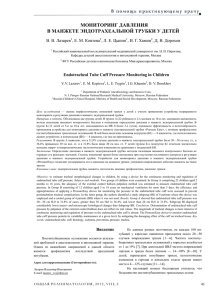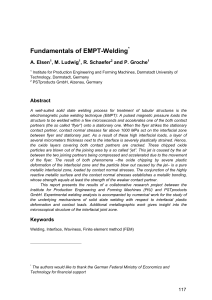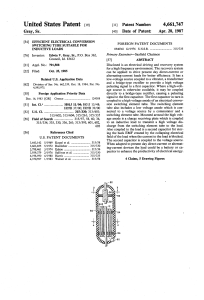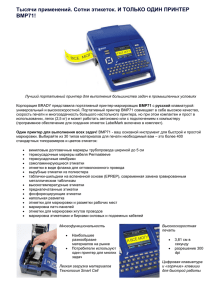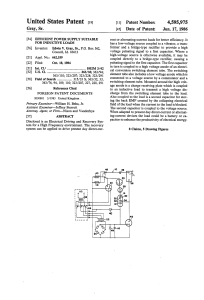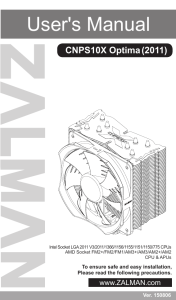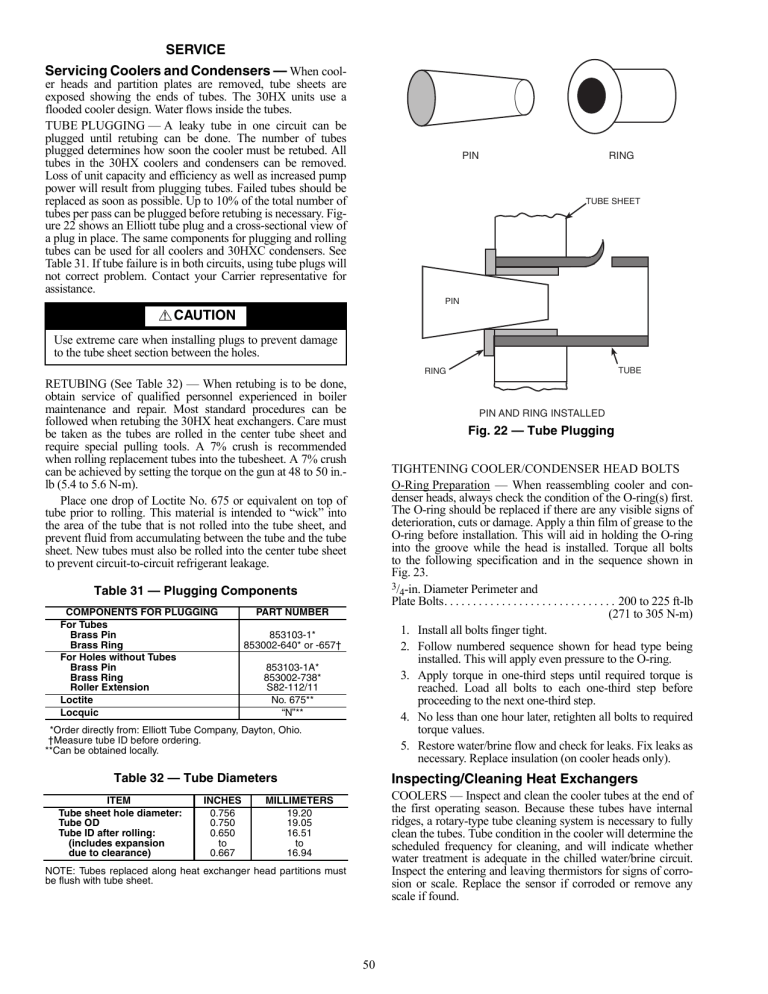
SERVICE Servicing Coolers and Condensers — When cool- er heads and partition plates are removed, tube sheets are exposed showing the ends of tubes. The 30HX units use a flooded cooler design. Water flows inside the tubes. TUBE PLUGGING — A leaky tube in one circuit can be plugged until retubing can be done. The number of tubes plugged determines how soon the cooler must be retubed. All tubes in the 30HX coolers and condensers can be removed. Loss of unit capacity and efficiency as well as increased pump power will result from plugging tubes. Failed tubes should be replaced as soon as possible. Up to 10% of the total number of tubes per pass can be plugged before retubing is necessary. Figure 22 shows an Elliott tube plug and a cross-sectional view of a plug in place. The same components for plugging and rolling tubes can be used for all coolers and 30HXC condensers. See Table 31. If tube failure is in both circuits, using tube plugs will not correct problem. Contact your Carrier representative for assistance. PIN RING TUBE SHEET PIN CAUTION Use extreme care when installing plugs to prevent damage to the tube sheet section between the holes. TUBE RING RETUBING (See Table 32) — When retubing is to be done, obtain service of qualified personnel experienced in boiler maintenance and repair. Most standard procedures can be followed when retubing the 30HX heat exchangers. Care must be taken as the tubes are rolled in the center tube sheet and require special pulling tools. A 7% crush is recommended when rolling replacement tubes into the tubesheet. A 7% crush can be achieved by setting the torque on the gun at 48 to 50 in.lb (5.4 to 5.6 N-m). Place one drop of Loctite No. 675 or equivalent on top of tube prior to rolling. This material is intended to “wick” into the area of the tube that is not rolled into the tube sheet, and prevent fluid from accumulating between the tube and the tube sheet. New tubes must also be rolled into the center tube sheet to prevent circuit-to-circuit refrigerant leakage. PIN AND RING INSTALLED Fig. 22 — Tube Plugging TIGHTENING COOLER/CONDENSER HEAD BOLTS O-Ring Preparation — When reassembling cooler and condenser heads, always check the condition of the O-ring(s) first. The O-ring should be replaced if there are any visible signs of deterioration, cuts or damage. Apply a thin film of grease to the O-ring before installation. This will aid in holding the O-ring into the groove while the head is installed. Torque all bolts to the following specification and in the sequence shown in Fig. 23. 3/ -in. Diameter Perimeter and 4 Plate Bolts. . . . . . . . . . . . . . . . . . . . . . . . . . . . . . 200 to 225 ft-lb (271 to 305 N-m) 1. Install all bolts finger tight. 2. Follow numbered sequence shown for head type being installed. This will apply even pressure to the O-ring. 3. Apply torque in one-third steps until required torque is reached. Load all bolts to each one-third step before proceeding to the next one-third step. 4. No less than one hour later, retighten all bolts to required torque values. 5. Restore water/brine flow and check for leaks. Fix leaks as necessary. Replace insulation (on cooler heads only). Table 31 — Plugging Components COMPONENTS FOR PLUGGING For Tubes Brass Pin Brass Ring For Holes without Tubes Brass Pin Brass Ring Roller Extension Loctite Locquic PART NUMBER 853103-1* 853002-640* or -657† 853103-1A* 853002-738* S82-112/11 No. 675** “N”** *Order directly from: Elliott Tube Company, Dayton, Ohio. †Measure tube ID before ordering. **Can be obtained locally. Table 32 — Tube Diameters ITEM Tube sheet hole diameter: Tube OD Tube ID after rolling: (includes expansion due to clearance) INCHES 0.756 0.750 0.650 to 0.667 Inspecting/Cleaning Heat Exchangers COOLERS — Inspect and clean the cooler tubes at the end of the first operating season. Because these tubes have internal ridges, a rotary-type tube cleaning system is necessary to fully clean the tubes. Tube condition in the cooler will determine the scheduled frequency for cleaning, and will indicate whether water treatment is adequate in the chilled water/brine circuit. Inspect the entering and leaving thermistors for signs of corrosion or scale. Replace the sensor if corroded or remove any scale if found. MILLIMETERS 19.20 19.05 16.51 to 16.94 NOTE: Tubes replaced along heat exchanger head partitions must be flush with tube sheet. 50
